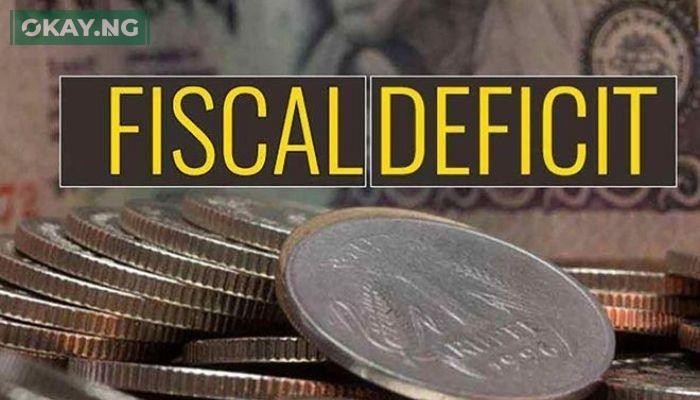The International Monetary Fund (IMF) has issued a stark warning about Nigeria’s economic trajectory, projecting a worsening fiscal deficit for Africa’s largest economy in the coming years. According to the Fund’s latest data released during the ongoing IMF/World Bank Spring Meetings in Washington D.C., Nigeria’s government is expected to spend 4.5 percent more than it earns in both 2025 and 2026. This represents a significant deepening of the fiscal shortfall compared to the estimated -3.4 percent of GDP in 2024.
The General Government Overall Balance, a key indicator reflecting the difference between the government’s total revenues and expenditures as a percentage of the Gross Domestic Product (GDP), paints a concerning picture. The IMF data indicates a decline in Nigeria’s General Government Revenue (as a percentage of GDP) from 14.4 percent in 2024 to 14.0 percent in 2025 and further down to 13.9 percent in 2026. This decline in revenue, coupled with sustained expenditure, is the primary driver behind the projected widening deficit.
“A persistent and widening deficit means the government will have to borrow more, increasing the national debt burden,” cautioned a Lagos-based investment analyst, speaking on condition of anonymity. “This could strain public finances considerably, especially if borrowing costs continue their upward trend due to prevailing high interest rates or a dip in investor confidence.”
The reliance on borrowing to bridge this widening gap is already evident in Nigeria’s rising debt-to-GDP ratio. By mid-2024, this ratio had climbed to 55 percent, a substantial increase from 42.4 percent at the close of 2023. Factors such as exchange rate depreciation and increased domestic borrowing at elevated interest rates have contributed to this surge.
The IMF’s concerns extend beyond Nigeria, as they project a sharp rise in global public debt in 2025, exceeding 95 percent of global GDP. This 2.8 percentage point jump from the 2024 estimate is attributed to escalating policy uncertainty, persistent trade tensions, and increasing fiscal demands worldwide. The Fund anticipates that global debt levels could approach 100 percent of GDP by the end of the decade, surpassing the highs witnessed during the COVID-19 pandemic.
Read Also: Reforms Haven’t Yet Bridged Nigeria’s Poverty Gap, Warns IMF
During a press briefing on the Fiscal Monitor, IMF officials, including Vitor Gaspar, director of the Fiscal Affairs Department, emphasized the urgency of decisive policy action to avert further increases in global debt. They noted that recent tariff announcements have amplified economic volatility, exacerbating the already fragile global economic landscape.
“Amid significant policy uncertainty and an increasingly fragile global economy, the rise in debt is not only persistent, it is accelerating,” the IMF stated unequivocally. The Fund highlighted that rising tariffs, tighter financial conditions, and heightened geopolitical tensions are compounding existing risks and placing additional pressure on public finances globally.
In response to these mounting fiscal challenges, the IMF urged countries, particularly those with limited fiscal space, to implement gradual yet credible fiscal adjustment plans. “Countries should put their fiscal house in order by adopting prudent policies within robust frameworks. This is critical to building public confidence and reducing economic uncertainty,” the Fund advised.
For low-income and developing nations like Nigeria, which are already grappling with financing difficulties, the IMF recommended steadfast adherence to planned fiscal reforms. This includes measures such as rationalizing government spending, broadening the tax base to capture more revenue, enhancing the efficiency of revenue collection mechanisms, and ensuring that any new expenditure initiatives are offset by corresponding measures. Countries facing debt distress were strongly encouraged to pursue timely and coordinated debt restructuring efforts.
In a more severe economic downturn scenario, the IMF painted a grim picture, warning that global public debt could potentially surge to 117 percent of GDP by 2027. This would represent its highest level since World War II and exceed current baseline projections by nearly 20 percentage points, underscoring the significant risks associated with inaction.
Beyond the immediate concerns of rising debt, the IMF also highlighted the long-term fiscal pressures that many governments, including Nigeria’s, will face due to factors such as aging populations, increasing defense needs, and the escalating costs associated with addressing climate change. With interest rates expected to remain elevated and commodity prices exhibiting increasing volatility, funding essential social programs and crucial public investments could become significantly more challenging.
The IMF called upon advanced economies to address underlying structural challenges through reforms in pension and healthcare systems. Simultaneously, emerging markets and developing economies were encouraged to focus on improving their tax systems and eliminating inefficiencies within their public financial management. The Fund stressed that any fiscal support measures implemented in response to trade-related shocks should be temporary, carefully targeted, and fully transparent to ensure accountability and effectiveness.
“Significant policy changes and heightened uncertainty have worsened the fiscal outlook,” the IMF concluded. “To build resilience and ensure sustainable growth, governments must prioritize sound fiscal management, implement fair taxation policies, and ensure the wise and efficient allocation of public resources.” The Fund’s projections serve as a critical reminder of the urgent need for prudent fiscal planning and decisive policy action to safeguard Nigeria’s economic stability and long-term prosperity.













